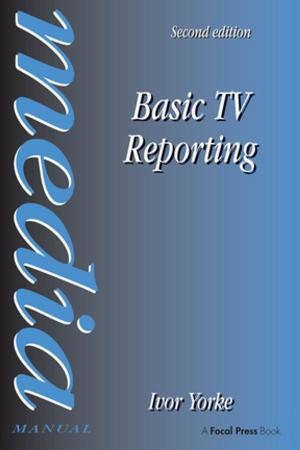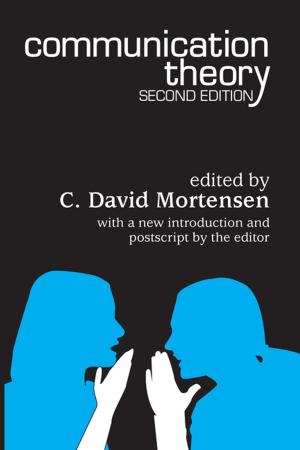Married to the Job (RLE Feminist Theory)
Wives' Incorporation in Men's Work
Nonfiction, Social & Cultural Studies, Social Science, Sociology| Author: | Janet Finch | ISBN: | 9781136195310 |
| Publisher: | Taylor and Francis | Publication: | November 12, 2012 |
| Imprint: | Routledge | Language: | English |
| Author: | Janet Finch |
| ISBN: | 9781136195310 |
| Publisher: | Taylor and Francis |
| Publication: | November 12, 2012 |
| Imprint: | Routledge |
| Language: | English |
Married to the Job examines an important but under-researched area: the relationships of wives to their husbands’ work. Janet Finch looks both at the way women’s lives are directly affected by the work their husbands do and how they can get drawn into it. These she sees as the two sides of wives’ ‘incorporation’. Dr Finch discusses a wide range of occupations, from obvious stereotypes – services, diplomatic, clergy and political wives – to more subtle but equally valid shades of involvement – the wives of policemen, merchant seamen, prison officers, the owners of small businesses and academics. She stresses that this process is by no means confined to the wives of professional men; she argues that the nature of the work done and the way it is organised are more important pointers to the ways in which wives will be incorporated. For specific illustrations, Dr Finch draws substantially on her own original research on wives of the clergy.
Married to the Job clearly shows that marriage itself (not just child-bearing) is an important feature of women’s subordination. Dr Finch points to the links between husband’s work, the family and its relationship to economic structures, and suggests that wives are tied into those structures as much as anything through their vicarious involvement in their husband’s work. She views any prospects for change with caution. The organisation of social and economic life makes it difficult for wives to break free from this incorporation even should they wish to; it makes economic good sense for them to continue in most cases; social life is organised so as to make compliance easy; and it provides a comprehensible way of being a wife.
As an empirically-based survey of women’s subordination within marriage, Married to the Job will prove essential reading to all those concerned about the position of women, whether feminists, academics or general readers. It will also provide important background material for undergraduate courses on women’s studies, the sociology of the family, the sociology of work and family policy.
Married to the Job examines an important but under-researched area: the relationships of wives to their husbands’ work. Janet Finch looks both at the way women’s lives are directly affected by the work their husbands do and how they can get drawn into it. These she sees as the two sides of wives’ ‘incorporation’. Dr Finch discusses a wide range of occupations, from obvious stereotypes – services, diplomatic, clergy and political wives – to more subtle but equally valid shades of involvement – the wives of policemen, merchant seamen, prison officers, the owners of small businesses and academics. She stresses that this process is by no means confined to the wives of professional men; she argues that the nature of the work done and the way it is organised are more important pointers to the ways in which wives will be incorporated. For specific illustrations, Dr Finch draws substantially on her own original research on wives of the clergy.
Married to the Job clearly shows that marriage itself (not just child-bearing) is an important feature of women’s subordination. Dr Finch points to the links between husband’s work, the family and its relationship to economic structures, and suggests that wives are tied into those structures as much as anything through their vicarious involvement in their husband’s work. She views any prospects for change with caution. The organisation of social and economic life makes it difficult for wives to break free from this incorporation even should they wish to; it makes economic good sense for them to continue in most cases; social life is organised so as to make compliance easy; and it provides a comprehensible way of being a wife.
As an empirically-based survey of women’s subordination within marriage, Married to the Job will prove essential reading to all those concerned about the position of women, whether feminists, academics or general readers. It will also provide important background material for undergraduate courses on women’s studies, the sociology of the family, the sociology of work and family policy.















